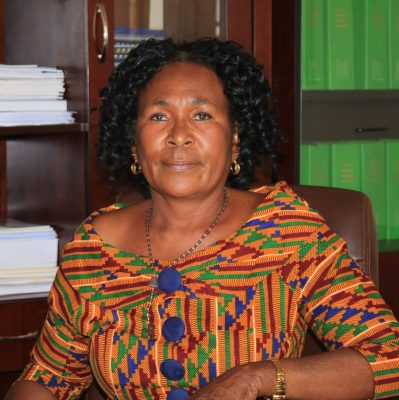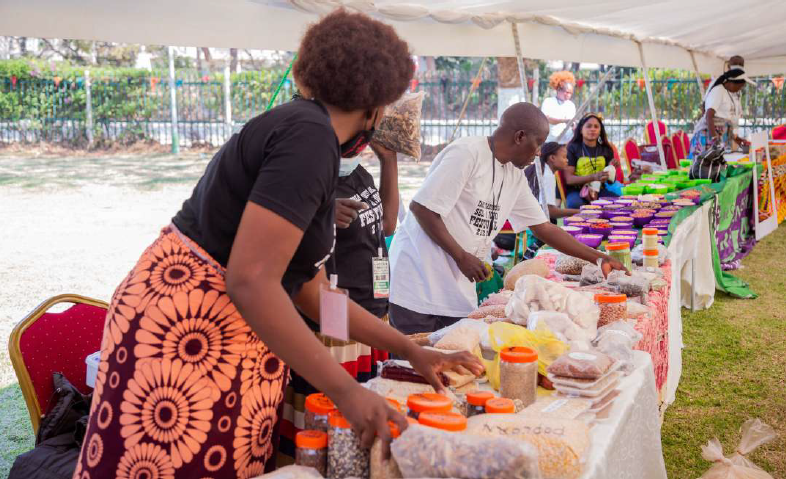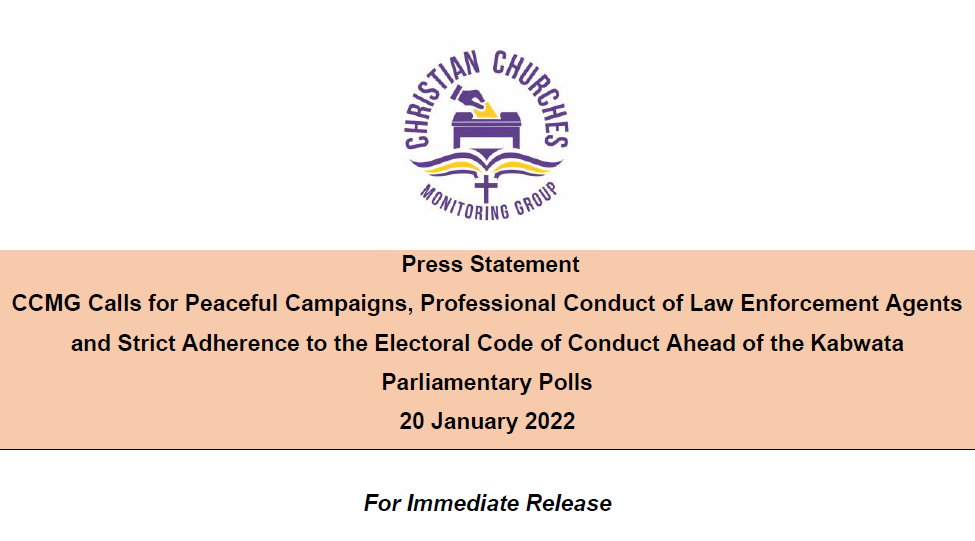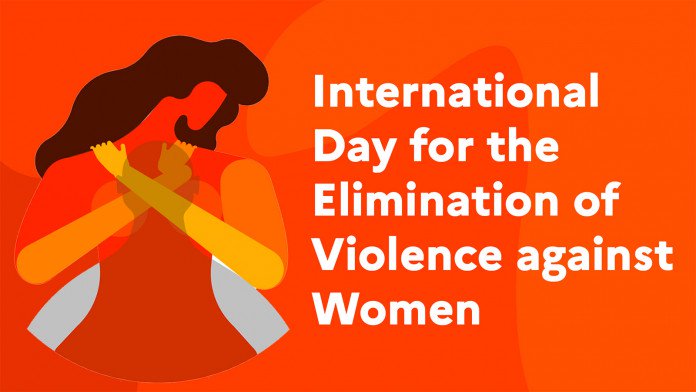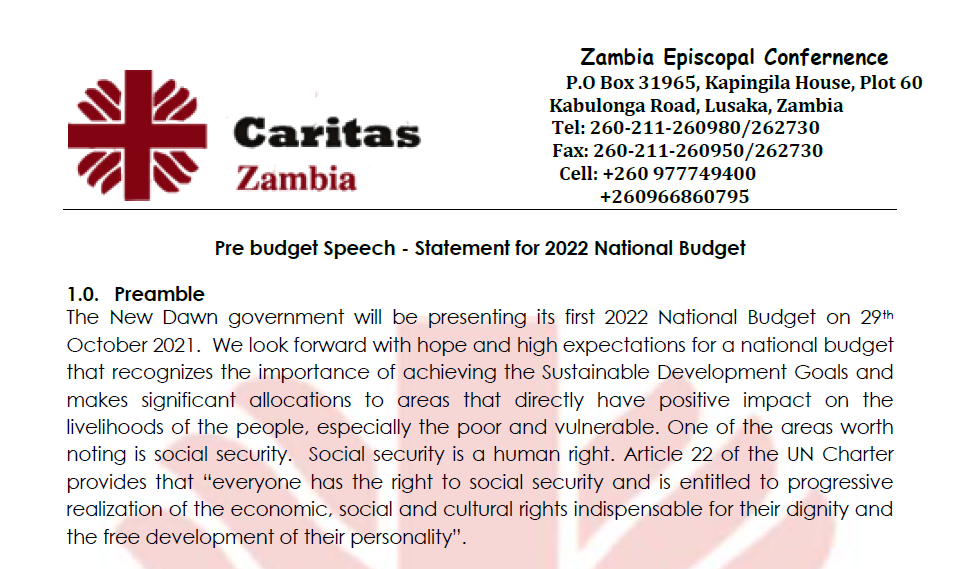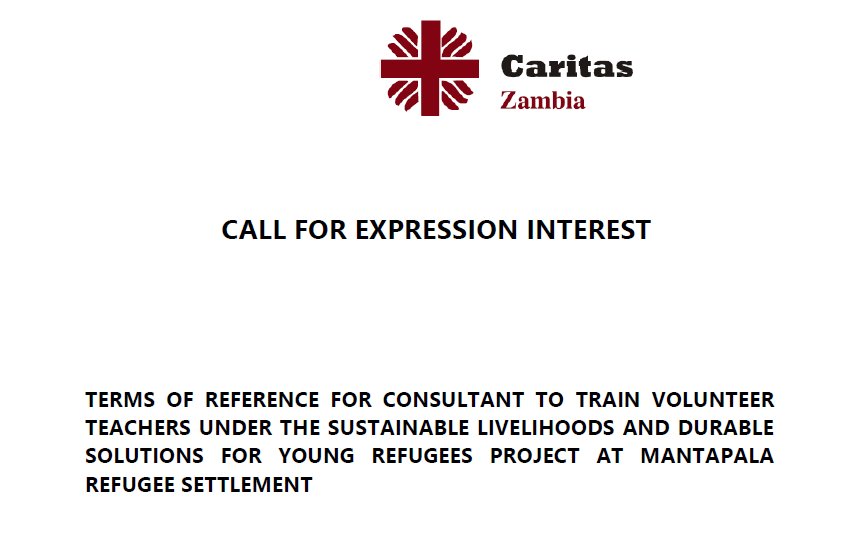Action for the Rights of Girls Project (ARGP)
Addressing the triple threat of HIV, Teenage pregnancy and Gender-based violence
Brief overview and BackGround
The overall objective of the project is to strengthen community frameworks and social environment that enable young people especially young girls and young women exercise fully their rights. This objective will be achieved when, the existing enabling environment for young people, especially adolescent girls and young women, to access information and services for the prevention of HIV, teenage pregnancies and gender-based violence is enhanced. The utilisation of platforms that will be created for the traditional and religious actors to dialogue and agree on effective approaches and ways of preventing HIV infections, teenage pregnancies and gender-based violence will contribute to the realisation of strengthened enabling environment for young girls and women to be aware of their rights and also to take action to claim them.
Currently, HIV and AIDS is the biggest epidemic in Zambia, with significant impact on morbidity and mortality levels throughout the country, cutting across all ages, gender and social status. Over the past decade, Zambia has been making progress in the fight against HIV. According to UNAIDS, the annual HIV infections (for all ages) in Zambia declined from 60,000 in 2010 to 51,000 in 2019. New infections among children 0-14 years declined from an estimated 10,000 in 2010 to 6,000 in 2019 and AIDS-related deaths annually have also declined significantly from 24,000 in 2010 to 19,000 in 2019, a decline of about 30 percent.
Despite this progress, the HIV burden remains high and disproportionately affects females especially the adolescent girls. In 2019, it was estimated that there were 26,000 new HIV infections among women aged 15 years and above, compared to 19,000 among their males counterparts. The Zambia Demographic and Health Survey (2018) reports that HIV prevalence among females aged 15-49 years is 14.2 per cent, compared to 7.5 percent for males of the same age. These figures show that Women, particularly adolescent girls and young women, are more affected than boys and young men.
Regarding teenage pregnancy, the 2018 Zambia Demographic and Health Survey preliminary findings indicates that teenage pregnancies in Zambia are still on the rise despite the many interventions being put in place. According to the report, 29 percent of women aged between 15 and 19 have already begun childbearing with 24 percent having had a live birth, and five percent having been pregnant with their first child. The report further states that six percent of women have already begun childbearing at the age of 15 but the proportion of having children increases rapidly with age, reaching 53 percent among women aged 19. The 2018 Demographic and Health Survey report also stated that Southern Province recorded the highest cases of teenage pregnancies at 43 percent followed by Western Province at 41 percent, Eastern at 40 percent, with Lusaka being the least at 15 percent.
Adolescent pregnancy undermines girls’ human rights and compromises their opportunity to fully realize their socioeconomic development potential. Adolescent girls have the right to education, health, dignity, non-discrimination, and quality of life. Protecting, promoting, and fulfilling these rights is necessary to ensure that girls grow into healthy, skilled, productive, independent, and responsible adults, and yet the prevalence of adolescent pregnancy stands in the way of ensuring these rights are actualised. Most adolescent girls drop out of school when they are pregnant, which compromises their future because they grow up with limited career options and opportunities. Furthermore, some girls will have unsafe abortions that lead to injuries, disability, and sometimes death. Engaging in sex also puts adolescent girls at higher risk of contracting STIs/HIV and human papillomavirus (HPV), which is responsible for causing cervical cancer.
On Gender based Violence, the United Nations Development Programme (2020, human development, on Zambia) reviews the devastating extent of violence against females aged 15 and older which is pegged at 45.9 percent. Apart from this, 29 per cent of married women aged between 20 and 24 were married as children before the age of 18. This situation is an abuse of the young girls’ rights.
In addition, Gender-Based Violence, rape and defilement undermines the health, dignity and self-esteem of victims especially girls and young women. The 2020 fourth quarter, Zambia police report, Zambia recorded 8,557 cases of gender-based violence resulting in a 10.7% increase in the number of GBV cases compared to the previous quarter of 2020. As we acknowledge the 15% reduction in reported cases of GBV in first quarter of 2021 compared to same quarter in 2020 (Zambia Police report), there is still a lot needed to be done in order to reverse this scourge.
In addressing the triple threat of HIV, Teenage pregnancy and Gender-based violence this project will use the power of influence the religious and traditional leaders have on adolescents and young people’s ability to protect themselves against HIV, teenage pregnancy and gender based violence. Relying on the positive experiences made with engaging religious and traditional leaders in Southern Province of Zambia on GBV prevention, using the Contextual Issue Studies approach and the interest that was created, there is need to build on this further.
Action for the rights of Girls’ Project aims at ensuring that young people have access to quality, youth-friendly information and services for the prevention of HIV, teenage pregnancies and gender-based violence. The project will apply a multifaceted approach to achieve its goal. A core aspect of this approach is to strengthen the existing community frameworks that enable young people exercise fully their rights, that is being aware of them, and the ability to claim them, when violated.
This programme builds on the successful intervention that was jointly implemented with Caritas Monze and Livingston under the Partnerships for Prevention of Violence Against Women and Girls in Southern Africa (PfP) programme in which the Religious and Traditional actors became very aware of the horrible effects of GBV and committed to intervene so as to mitigate this. Likewise, this programme will strengthen the existing enabling environment for young people, especially adolescent girls and young women, to access information and services for the prevention of HIV, teenage pregnancies and gender-based violence. More specifically, it will target some selected actors from the social environment of young people and sensitize them about youth-friendly methods in sexual and reproductive health and rights, gender-based violence, and HIV prevention.” To achieve this, ARGP will create a platform for Traditional and Religious actors to dialogue on effective approaches and ways of preventing HIV infections, teenage pregnancies and gender-based violence.
Download the entire Action for the Rights of Girls Project (ARGP) Brief Overview here https://caritaszambia.org/phocadownload/general/Action-for-the-Rights-of-Girls-Project-Brief-Overview.pdf
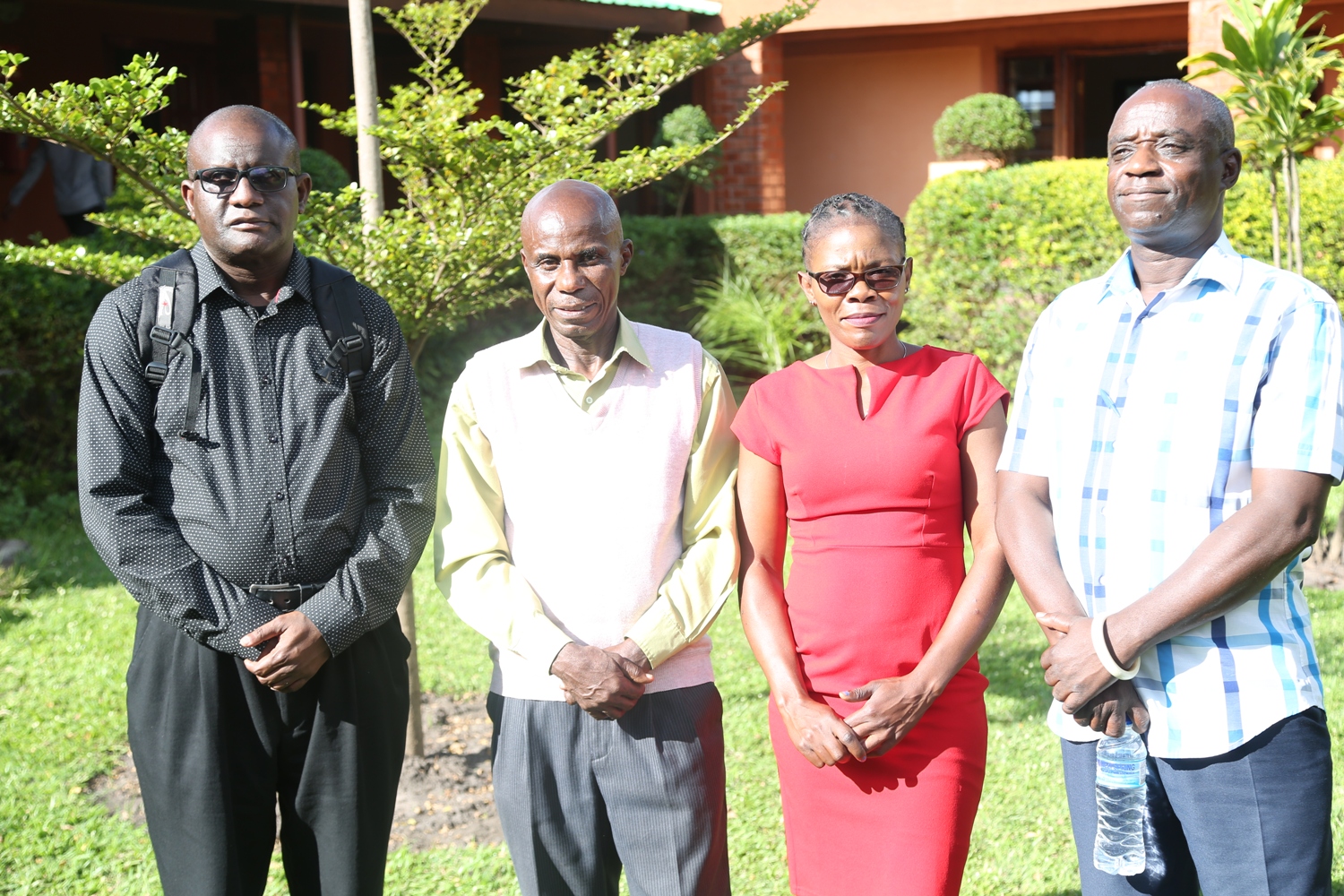
Project Facilitators
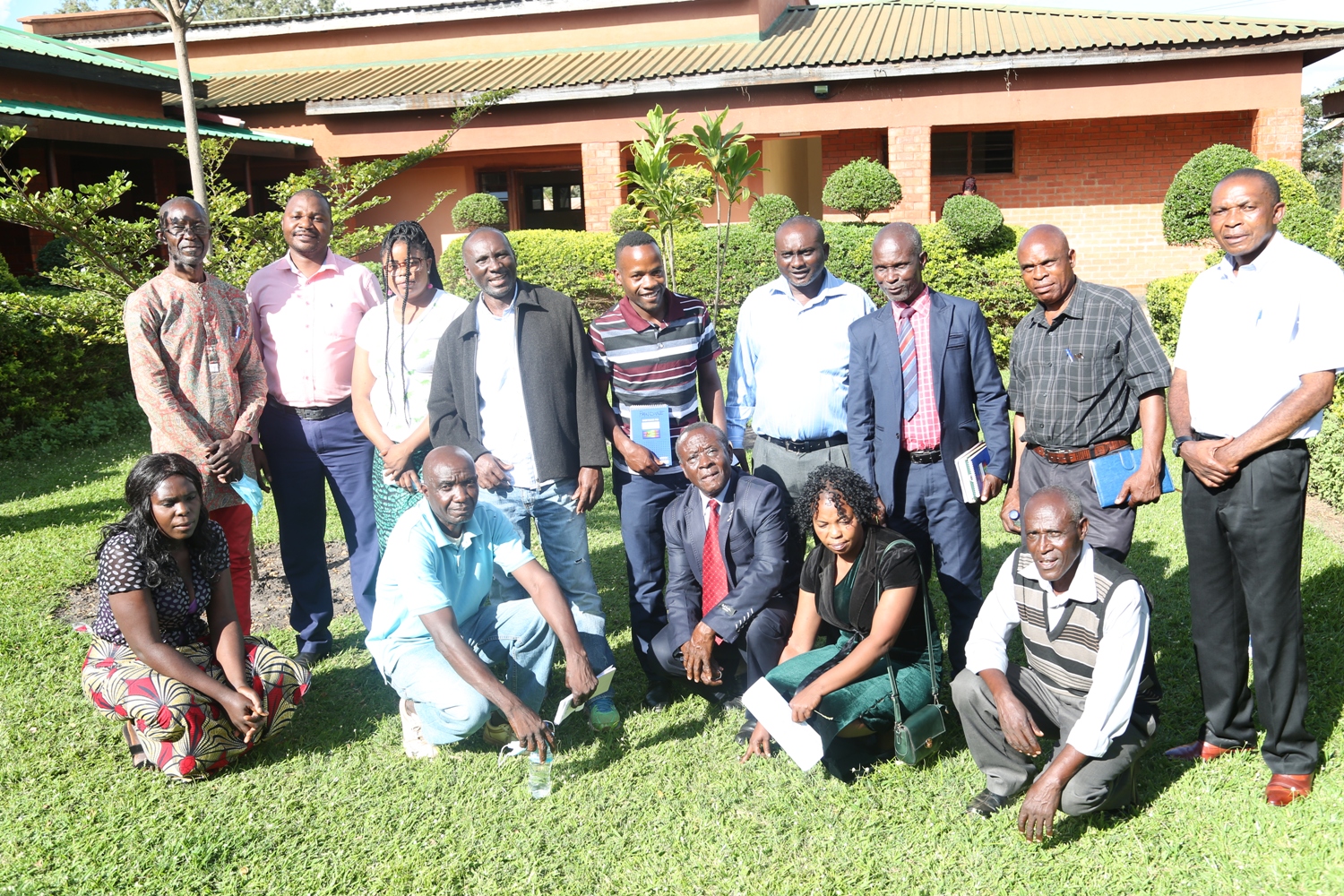
Religious Leaders
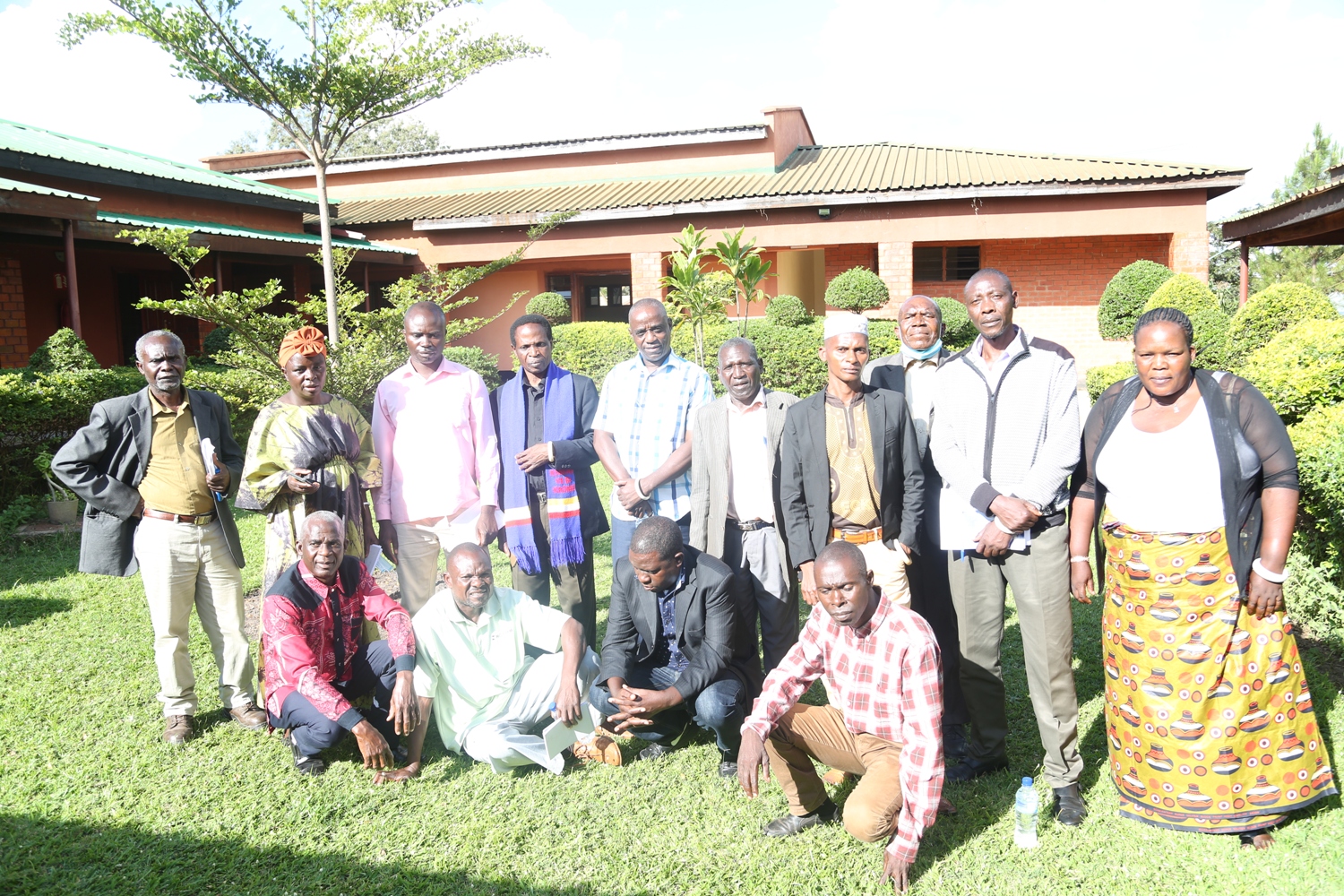
Traditional Leaders
Every three years, the World Water Council convenes an international forum to raise awareness on global water challenges. The 9th Water Forum to be held in Dakar, Senegal from 22-27 March 2022. The forum’s aim is to raise awareness among economic, political and social decision makers in order to trigger action; facilitate dialogue and experience sharing on efforts to improve access to water and sanitation supply and; to create an environment for cooperation in the implementation of integrated concrete responses to issues in water. In addition, this year’s World Water Day-22nd March is focusing on groundwater “Making the invisible visible”. As climate change gets worse, groundwater is becoming more and more critical.
Download the entire Caritas International Position Paper on 9th World Water Forum, 2022: “Water Security for Peace and Development” here https://caritaszambia.org/phocadownload/general/CI-POSITION-PAPER-FOR-THE-2022-WORLD-WATER-FORUM.pdf
Every three years, the World Water Council convenes an international forum to raise awareness on global water challenges. The 9th Water Forum will be held in Dakar, Senegal from 22 to 27 March 2022. The forum’s aim is to raise awareness among economic, political and social decision makers in order to trigger action; facilitate dialogue and experience sharing on efforts to improve access to water and sanitation supply; and to create an environment for cooperation in the implementation of integrated concrete responses to issues in water.
Download the entire 9th World Water Forum, Dakar 2022. Water Security for Peace and Development. Beyond Commitments, What Should Be Done? here https://caritaszambia.org/phocadownload/general/9th-World-Water-Forum-19-03-2022.pdf
MINISTRY OF COMMUNITY DEVELOPMENT AND SOCIAL SERVICES STATEMENT FOR IMMEDIATE RELEASE
2022 World NGO Day Celebrations – 27th February, 2022
To all Non-Governemental Organisations and stakeholders in Zambia
As you may be aware, the World Non-Governemental Organisations (NGO) Day falls on 27th February, 2022. The World NGO day is a universal concept aimed at celebrating, commemorating and appreciating the role of NGOs in the development process around the world. During this day, NGOs share their knowledge and experiences in their work and Governments use the day to restate their policy position in facilitating active participation of NGOs in their respective jurisdictions.
Caritas Africa Info is a Quarterly Newsletter of Caritas in Africa
Download the entire GOVERNMENT OF THE REPUBLIC OF ZAMBIA STATEMENT ON THE 2022 WORLD NGO DAY CELEBRATIONS here https://caritaszambia.org/phocadownload/general/GOVERNMENT-OF-THE-REPUBLIC-OF-ZAMBIA-STATEMENT-ON-THE-2022-WORLD-NGO-DAY-CELEBRATIONS.pdf
Zambia: Caritas wins a ward for best seed exhibition
The Zambian Seed and Food Festival is a concept that aims to bring back seeds that are in danger of extinction due to the hybrid seeds of multinationals that have taken centre stage. The festival also aims to encourage the preservation of seeds that can still withstand the current adverse weather conditions in order to address food and nutrition insecurity. It is a platform for small-scale farmers to share their ideas on why and how to save the local Zambian seeds that have fed generations.
Among the many stalls at the festival were farmers from Caritas Zambia's food security projects in Kumena and Zambia under the livelihoods programme. They presented a fascinating seed exhibition, which showed the importance of traditional seeds as major contributions to the food system, in terms of nutrition, economic empowerment, social and cultural heritage as well as political power in relation to traditional seeds and foods.
Farmers from all diocesan Caritas presented a diversity of seeds while highlighting the story of increased production, household income, value addition, better marketing, reduced suffering of women and improved food security of their communities. As a result, they won the award for the best presentation of seed diversity at the 4th Zambian Traditional Food and Seed Festival 2021.
On receiving the award, the farmers expressed their joy, but also their concern that the lack of diversity in seed and food production is affecting the diet of many communities, leading to hunger and malnutrition. "Therefore, our exhibition is a strong call to improve diversity in both food production and consumption by promoting local seed diversity.
Farmers from Caritas Zambia, Food Security Projects and Kumena, reiterated the call for seed sovereignty, which includes the rights of farmers to save, reproduce and exchange seeds, to have access to diverse seeds This is the case for traditional open-pollinated seeds that can be saved, replanted and are not genetically modified. "Seed sovereignty recognises the importance of farmersaved seed systems, which are essential for food security at the household level.
Caritas Zambia says that in addition to displacing and destroying diversity, commercialised seed varieties also undermine seed sovereignty and farmers' rights. That's why small-scale farmers should be encouraged to grow their own traditional seeds.
The award received by Caritas Zambia comes with a call and recommendation to invest in research and development and seed system services.
Seeds are undoubtedly the most important agricultural input, as without seeds there is no harvest. They are a fundamental pillar of agricultural and food production
and the need for integrated seed system laws rather than prohibiting the use and sale of traditional varieties and breeds cannot be overstated.
Caritas Africa Info is a Quarterly Newsletter of Caritas in Africa
Download the entire Quarterly Newsletter of Caritas in Africa for October-December 2021 here https://www.caritaszambia.org/phocadownload/quarterly_bulletins/Caritas-Africa-Info-Quarterly-Newsletter-October-December-2021.pdf
PRESS STATEMENT
CCMG Calls for Peaceful Campaigns, Professional Conduct of Law Enforcement Agents and Strict Adherence to the Electoral Code of Conduct Ahead of the Kabwata Parliamentary Polls
20 January 2022
As the Electoral Commission of Zambia (ECZ) conducted fresh nominations for the Kabwata Parliamentary By-Election which was scheduled to take place on 20 January 2022, but was cancelled and postponed to 3 February 2022 in accordance with Article 52(6) of the Constitution of the Republic of Zambia following the resignation and withdrawal of a candidate, CCMG calls on all contesting political parties and candidates to adhere to the Electoral Process Act and Electoral Code of Conduct during campaigns and on election day.
“We would like to call on all political parties, candidates and their supporters to adhere to the Electoral Code of Conduct and conduct violence free campaigns, restraining all supporters from acts of provocation of their political opponents. The cancellation of the Kabwata Parliamentary By-Election necessitated by the invocation evocation of Article 52(6) of the Constitution by the UPP candidate adds unnecessary costs to the running of elections by the Commission as well as to the participation of political parties and candidates. This occurrence confirms the urgent need for constitutional and legal reforms ahead of future by-elections and the 2026 General Election” said CCMG Steering Committee Chairperson Fr. Emmanuel Chikoya.
CCMG would like to encourage the Electoral Commission of Zambia to enforce the Electoral Code of Conduct without fear. One of their key mandates is to ensure a peaceful and credible election and this can be achieved by invoking provisions of the law against any candidate or political party whose actions threaten peaceful and credible elections. Equally, the Zambia Police have a duty to provide security, maintain law and order and enforce the law. Our expectations of the Zambia Police therefore are that they perform their duties diligently without fear or favor and that they investigate all acts of violation of the electoral code of conduct without discrimination.
“We would like to condemn acts of violence which led to injury and damage of property in Chilenje on 29 December 2021 and we call upon relevant authorities particularly the Zambia Police to ensure that the perpetrators of violence are dealt with according to the law. Such acts do not only create an unsafe environment for voters but undermine the principles of participation, association and expression” said CCMG Steering Committee Spokesperson Fr. Alex Muyebe.
CCMG would like to encourage the media to continue providing equal access and coverage to all political parties and contesting candidates. Media is not only a key stakeholder in the electoral process but a key carrier of political messages especially at this time when due to the COVID-19 pandemic, physical gatherings are discouraged and minimized. CCMG urges the media to unreservedly and impartially play its key role of providing space for all the political parties and candidates to interact with electorates in order to allow entrenchment of democratic governance through the electoral process in our country.
Thank you.
Download the entire Signed Press Statement CCMG Calls for Peaceful Campaigns, Professional Conduct of Law Enforcement Agents and Strict Adherence to the Electoral Code of Conduct Ahead of the Kabwata Parliamentary Polls here https://www.caritaszambia.org/phocadownload/general/CCMG-Statement-on-The-Kabwata-By-Election-2022.pdf
PRESS STATEMENT ON THE COMMEMORATION OF THE INTERNATIONAL DAY FOR THE ELIMINATION OF VIOLENCE AGAINST WOMEN.
The United Nations (UN) International Day for the Elimination of Violence Against Women is an occasion for governments, international organizations and non-governmental organizations to raise public awareness of violence against women. This day has been commemorated every November 25th each year since 2000. The Commemoration of this day also marks the beginning of the16 days of activism against gender-based violence which runs until 10 December – the International Human Rights Day.
This year’s theme for the commemoration of the International Day for Elimination of Violence Against Women is being commemorated under the theme: “Orange the World: End Violence Against Women Now!’’
In reference to this year’s theme, Caritas Zambia takes cognisant of the many challenges women and girls face which have in a long time negatively impacted the lives and the general wellbeing of both women and girls. Violence against women and girls takes many forms and is widespread throughout the globe. On this International Day for Elimination of Violence Against Women, Caritas Zambia would like to challenge the new dawn government to harness the energy, ideas and leadership of young people to help in ending this pandemic of violence. Only then will we have a more just, peaceful and equitable world and be accountable to act now!
It is evident from the many studies that violence against women and the cruel mistreatment of girls especially through some harmful traditional practices which include child marriages among others are among some of the most seething vices which still plague developing countries like Zambia where cases of gender-based violence against women and girls are still rampant. This is evidenced from the third quarter Zambia Police report on Gender-Based Violence and defilement where; A total of 4,042 cases of Gender-Based Violence (GBV) were reported Countrywide during the Third Quarter of 2021. The 2021 Third Quarter Gender-Based Violence disaggregated Data indicates that 1,027 child victims were abused countrywide representing 25.4% of all the victims of Gender-Based Violence. Out of the 1,027children, 850 were girls representing 82.8%while 177 were boys representing 17.2% of all abused child victims respectively. 2,437 women and 578 men were abused countrywide representing 60.3% and 14.3% respectively. In addition, on sexual offences a total of 496 cases of Child defilement translating to 72.4% were recorded, of which 486 were girls and 10 were boys, representing 98% and 2% of all the reported defilement cases. This clearly shows that women and girls are more vulnerable to violence and we as a country should make concerted efforts to stop this surge of violence against women and girls.
Caritas Zambia is disheartened by the continued high levels of violence against women and girls being recorded in an era when countries have female heads of state and also women instituted in major powerful positions and portfolios worldwide, Caritas Zambia, therefore, note with displeasure that the horrific plight of the female is still this high and it is indeed a shame in this 21st century. It is evident that violence against women and girls is a universal challenge which is a product of unequal gender power relations and discrimination against women and girls, which is exacerbated by conflict and humanitarian crises which include among other things; poverty, economic stress, harmful traditional practices, illiteracy and, at times, the harmful use of alcohol and or other drugs.
Further, Caritas Zambia also notes that some of the measures to contain COVID-19, such as restrictions in movement and staying at home increased exposure for those already in abusive relationships more especially during the first and second wave of COVID19. This further attributed to increase in abuse in those in marriages leading to high levels of divorce, this is evident from the divorce statistics /report of 2020 where over 20,000 cases of divorce were recorded countrywide. This has also been coupled with the increased burdens and stress from loss of livelihoods, combined with fewer opportunities for social contact with informal and formal networks and limited access to services and community support.
Therefore, in order to eliminate violence against women and girls (victims/survivors) and to ensure that they receive the required support and services, we implore that the government must:
- Strengthen the care and support services for the victims and survivors – this includes decentralisation of the care and support services to the lowest community/ village level. These include also providing more resources to the police service to enhance law enforcement and dealing with all forms of violence against women and girl meritoriously to further curb these vices. In addition to having resources, the government must also reinforce proactive efforts to integrate measures in all outbreaks preparedness, for instance, Covid19 and develop clear recovery plans to address violence against women and girls and ensure that these efforts are adequately funded. Considering that violence against women and children often co-exist and are interconnected in many ways, hence a need for a robust preventive and response mechanism and strategies that can coherently eliminate this vice.
- Establishment of more one-stop centres across the country to fully eliminate violence against women and girls and at the same time deal with the inconveniencing victims/survivors are subjected to. The government must also ensure that cases of violence against women and girls are fairly dispensed by police and the judiciary promptly with specific warning and sanctioning measures in an event that the policies and procedures are not followed. To further support this, the government must also ensure that more safe houses are constructed across the country especially in rural districts as a temporally measure to safe –keep the victim/survivors away from the perpetrators. This is in a quest to enhance the protection and restraining orders – and this should be done only after safety planning based on risk assessments have been conducted to avoid causing further harm to the victims.
- Promote autonomous Women and Girls Rights Movements – this is one of the effective ways that can help in supplementing government efforts to eliminate the scourge. Government like-minded Ministries should work with women and child-led movements to champion this agenda forward.
It is clear that Violence against women and girls has become a public health emergency as stated by UN Secretary-General - António Guterres, which requires consented efforts from every well meaningful Zambian to act justly now as per the 2021 theme: “Orange the World: End Violence Against Women Now!’’ We, therefore, challenge Government, cooperating partners, CSOs, religious leaders, and the community at large to redouble the efforts if violence against women and girls is to be eliminated by 2030.
Given to the press on 25th November 2021.
Ms Matanga Munkonze
Project Manager – Child Protection
Conflict Transformation and Peace Building (CTPB) Programme
CARITAS ZAMBIA
CARITAS ZAMBIA PRESS STATEMENT FOLLOWING THE CONCLUSION OF THE CONFERENCE OF PARTIES (COP26) ON CLIMATE CHANGE HELD IN GLASGOW, SCOTLAND FROM 31ST OCTOBER TO 13TH NOVEMBER, 2021
Caritas Zambia participated in the just ended Conference of Parties (COP26) on Climate Change which brought around 200 countries all over the world together. COP26 was the 5th COP since singing the historic Paris Agreement in 2015, and was seen as the first real test of the effectiveness of that climate treaty in averting a climate catastrophe. COP26 was important as the Paris Agreement states; every five years countries must revisit their promises and if possible, increase their ambitions.
Caritas Zambia APPRECIATES the decision made by the conference on a Glasgow Climate Pact requesting parties to consider formulating and publishing updated Nationally Determined Contributions (NDCs) before COP27. This we believe will provide countries with strong basis to start implementing the Agreement through the Nationally Determined Contributions (NDCs). However, there is urgent need for Parties to the agreement to meaningfully and practically increase their efforts to collectively reduce emissions through accelerated action and implementation of domestic mitigation measures in accordance with Article 4 of the Paris Agreement, and makes a particular call on the biggest historical polluters to increase the 2030 targets as soon as possible ahead of COP27
Download the entire Caritas Zambia Press Statement on Cop26 here https://caritaszambia.org/phocadownload/general/Caritas-Zambia-Press-Statement-on-Cop26.pdf
1.0. Preamble
The New Dawn government will be presenting its first 2022 National Budget on 29th October 2021. We look forward with hope and high expectations for a national budget that recognizes the importance of achieving the Sustainable Development Goals and makes significant allocations to areas that directly have a positive impact on the livelihoods of the people, especially the poor and vulnerable. One of the areas worth noting is social security. Social security is a human right. Article 22 of the UN Charter provides that “everyone has the right to social security and is entitled to the progressive realization of the economic, social and cultural rights indispensable for their dignity and the free development of their personality”.
Download the entire Pre-budget Speech - Statement for 2022 National Budget here https://caritaszambia.org/phocadownload/general/Budget-Statement-2021.pdf
TERMS OF REFERENCE FOR CONSULTANT TO TRAIN VOLUNTEER TEACHERS UNDER THE SUSTAINABLE LIVELIHOODS AND DURABLE SOLUTIONS FOR YOUNG REFUGEES PROJECT AT MANTAPALA REFUGEE SETTLEMENT
BACKGROUND
Caritas Zambia with support from terre des hommes Deutschland (TDH) in Partnership with the Federal Ministry for Economic Cooperation and Development (BMZ) of Germany is implementing a project titled “Sustainable Livelihoods and Durable Solutions for Young Refugees” at the Mantapala Refugee Settlement and Host Communities in Nchelenge District for a period of three (3) years (2021-2023).
The main goal of this project is to contribute to the attainment of Sustainable Livelihoods and Durable Solutions for Young Refugees. Also to ensure that empowered youth in the refugee settlement and host communities use their capacities to pursue viable and sustainable livelihoods and earn a living independently.
Download the entire CALL FOR EXPRESSION INTEREST TO TRAIN VOLUNTEER TEACHERS here https://caritaszambia.org/phocadownload/general/Mantapala-Teacher-Training-TOR.pdf
- CALL FOR EXPRESSION INTEREST TO DEVELOP TRAINING MANUAL ON SUSTAINABLE LIVELIHOODS/IGA MANAGEMENT
- Caritas Zambia Recognition of the Presidential Speech at the UN Food Systems Summit held in New York 23rd to 24th September 2021
- CARITAS Zambia Bulletin 2021
- CCMG Calls on All Registered Voters in Zambia to Go to the Polls Confident that Citizen Monitors Will Help Safeguard the Vote
- ELECTORAL COMMISSION OF ZAMBIA STANDARD OPERATING PROCEDURES AGAINST COVID-19
- CCMG Statement on Analysis of the Voter Register
- INSPIRE: Seven Strategies for Ending Violence Against Children
- 2021 FARMERS MANIFESTO: Pushing for an agriculture sector that embraces rural sustainable development, farmer seed and food sovereignty and addresses household food and nutrition security
- 2021 Lenten Reflections for Small Christian Community
- MESSAGE OF HIS HOLINESS POPE FRANCIS FOR THE 2021 WORLD COMMUNICATIONS DAY
About Caritas Zambia
Caritas Zambia is a Catholic Organisation that is an integral structure of the Zambia Conference of Catholic Bishops (ZCCB). The Conference of Bishops is a permanent grouping of Bishops of a given nation or territory that jointly exercises certain pastoral functions on behalf of the Christian faithful of their territory. This is done for the sake of effective evangelisation. To promote the principle of the common good which the Church offers humankind, especially through forms and programmes of the apostolate which are fittingly adapted to the circumstances of the time and place, is the role of Bishops.
Kapingila Hse, Kabulonga Rd, Plot BRT6, P.O.Box 31965, Lusaka 10101, Zambia.
Tel: +260-211-260980 | +260-211-261789




